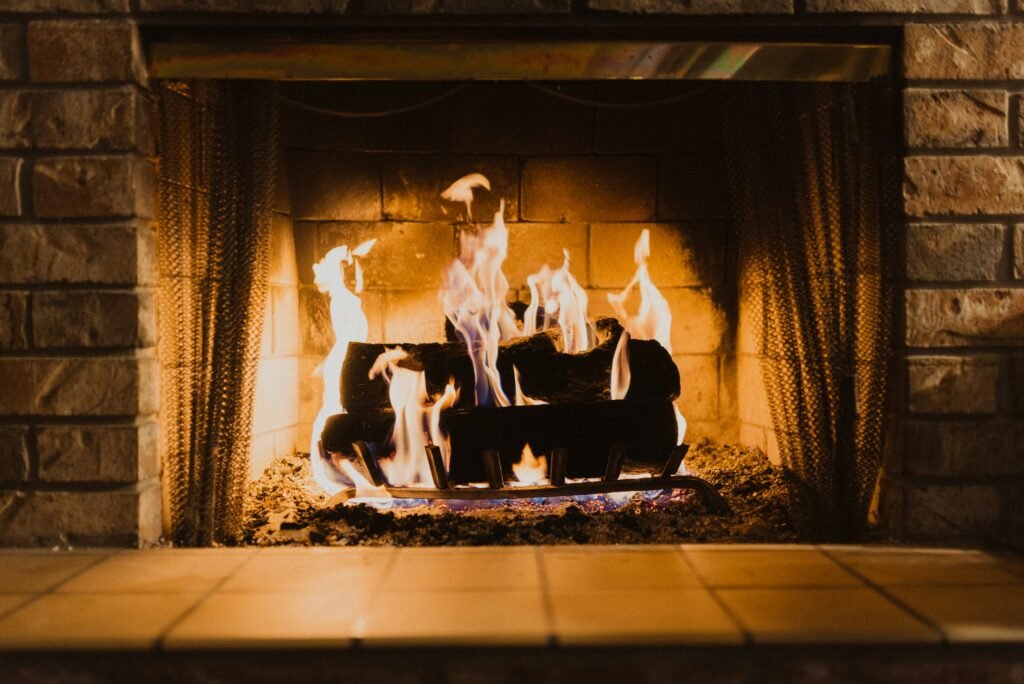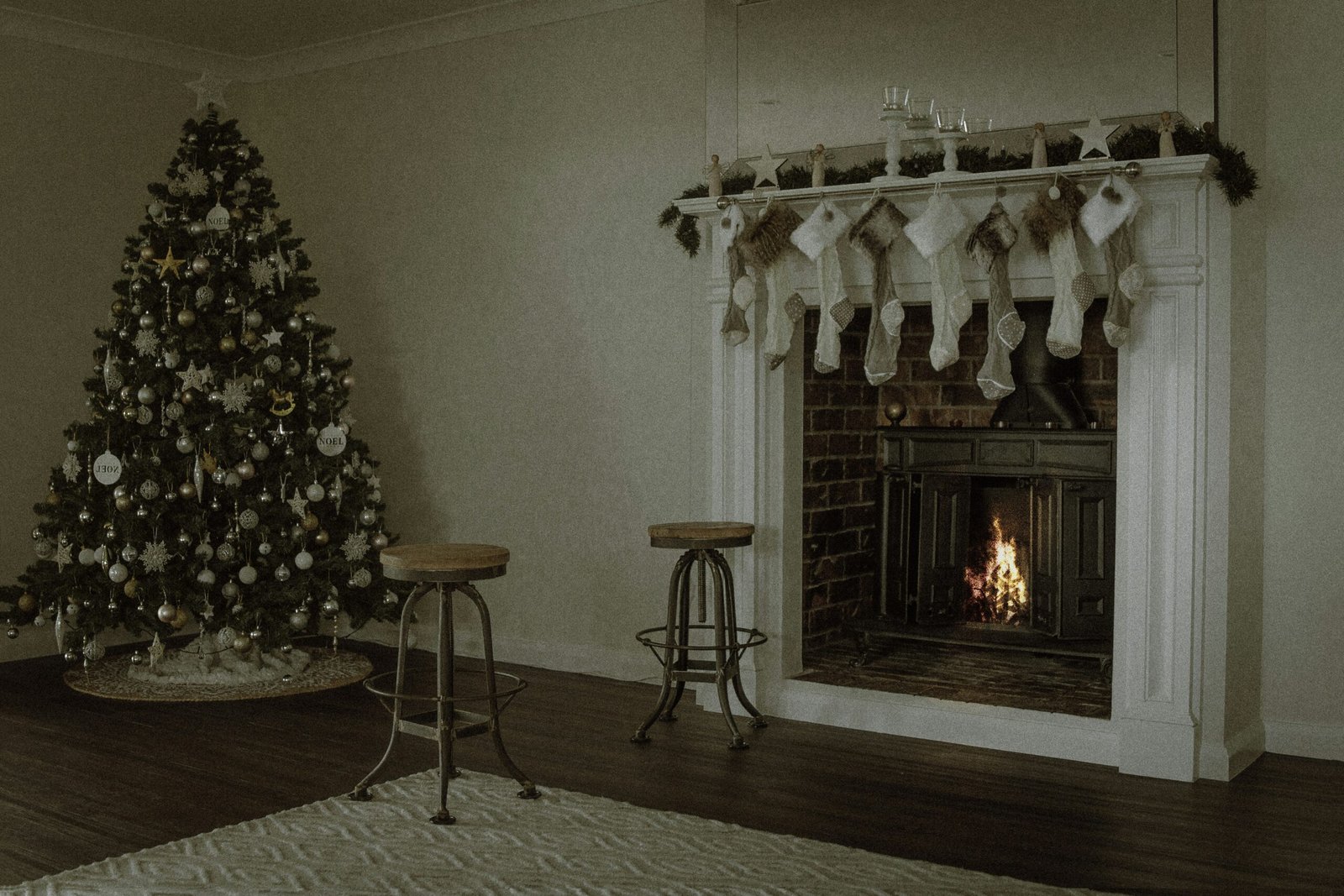Imagine curling up next to a cozy fireplace, feeling the warmth against your skin and hearing the crackling sound of burning logs. It’s a picture-perfect scene that many of us dream of. But before you rush into installing a fireplace heater in your home, it’s important to be aware of the advantages and disadvantages that come along with it. In this article, we will uncover the pros and cons of fireplace heaters, allowing you to make an informed decision that suits your needs and preferences. So, grab a cup of hot cocoa, sit back, and let’s explore the world of fireplace heaters!

This image is property of images.unsplash.com.
Advantages
Enhanced Ambiance
Having a fireplace heater in your home can greatly enhance the overall ambiance of the space. The warm glow of the flickering flames creates a cozy and inviting atmosphere that instantly makes any room feel more comfortable. Whether you opt for a realistic fire simulation with logs or prefer the simplicity of embers, the visual appeal of a fireplace heater adds a touch of elegance to your home decor. Moreover, the fireplace becomes a focal point in the room, drawing attention and creating a sense of coziness that is hard to replicate with other heating methods.
Cost-effective Heating
One of the major advantages of a fireplace heater is its cost-effectiveness when it comes to heating specific areas of your home. By using zone heating, you can target the warmth to the rooms that are being used, instead of wasting energy on heating the entire house. This leads to reduced heating costs, as you can lower the temperature in the rest of the house that is not in use. Fireplace heaters also tend to have lower overall energy consumption compared to central heating systems, which directly translates into lower utility bills.
Energy Efficiency
Fireplace heaters excel in energy efficiency due to their direct heat transfer to the room. Unlike central heating systems that rely on ducts or pipes to distribute heat, fireplace heaters eliminate the loss of heat that occurs in these systems. This means that the heat generated by a fireplace heater is not wasted and is instead delivered directly to the intended space. Additionally, fireplace heaters are designed with efficiency in mind, allowing you to adjust the heat output according to your preferences and needs. This ensures optimal energy usage while still providing the desired level of warmth.
No Installation Required
Another advantage of fireplace heaters is that they require no complex installation or construction. Unlike traditional fireplaces, which often involve significant renovation work, fireplace heaters can be easily set up without the need for specialized skills or professional assistance. They are portable heating devices, which means they can be moved and used in different rooms as needed. Fireplace heaters also have minimal space requirements, making them suitable for homes with limited room or layout options. Their ease of setup and mobility make them a convenient heating solution for those looking for simplicity and flexibility.
Smoke-free Operation
Fireplace heaters offer a clean and smoke-free heating experience. Unlike traditional fireplaces, which produce combustion byproducts like smoke and ash, fireplace heaters require no chimney or venting systems. This eliminates the need for regular cleaning and maintenance associated with traditional fireplaces. With a fireplace heater, you can enjoy the warmth and ambiance of a fire without the hassle of cleaning up residue or worrying about harmful emissions. This makes them an ideal heating solution for homes without chimneys or for those who prioritize low-maintenance heating options.
Disadvantages
Limited Heating Capacity
While fireplace heaters provide efficient and cost-effective heating, it is important to note that their heating capacity is limited. Fireplace heaters are suitable for heating specific areas of your home but may not be sufficient for large or open spaces. If you are looking for whole-house heating, a fireplace heater alone may not be able to meet your needs. However, when used strategically, they can provide targeted warmth to the rooms that are being used, thereby reducing the need for central heating systems and saving energy costs.
Dependency on Electricity or Combustible Fuel
Another factor to consider when choosing a fireplace heater is its dependency on either electricity or combustible fuel. Electric fireplace heaters rely on a power source for their operation, which means they require access to electricity. If you experience power outages or have limited access to electricity, an electric fireplace heater may not be a suitable option for you. On the other hand, fuel-powered fireplace heaters, such as those that use natural gas or propane, depend on a constant supply of fuel. This means you need to ensure you have a steady supply of fuel to keep the fireplace heater running effectively.
Potential Safety Hazards
Fireplace heaters, like any heating appliance, come with certain safety considerations. It is important to follow the manufacturer’s instructions and take necessary precautions to minimize potential safety hazards. For example, electric fireplace heaters should not be placed near flammable materials, and fuel-powered options should be carefully monitored for any potential gas leaks. Additionally, fireplace heaters emit heat, so caution must be exercised to prevent accidental burns or fire hazards. Taking these precautions and regularly inspecting and maintaining your fireplace heater will help ensure its safe and efficient operation.
Requires Regular Maintenance
To keep your fireplace heater functioning optimally, regular maintenance is necessary. This includes cleaning the logs or embers, as well as checking and replacing any worn-out parts or bulbs. Ensuring proper ventilation is also important, especially for fuel-powered fireplace heaters, to prevent the buildup of carbon monoxide. Regular inspection for safety is crucial to identify any potential issues or malfunctions that may compromise the operation of the fireplace heater. While maintenance may require a small investment of time and effort, it is essential for the longevity and performance of your fireplace heater.
In conclusion, fireplace heaters offer several advantages that make them a desirable heating option for many homeowners. The enhanced ambiance they provide creates a cozy and inviting atmosphere in any room. They are cost-effective, allowing for targeted warmth and reduced heating costs. Fireplace heaters are also energy-efficient, directly transferring heat to the room and minimizing energy wastage. Their easy installation and mobility make them a convenient choice, while their smoke-free operation eliminates the need for chimneys and simplifies maintenance. However, it is important to consider their limited heating capacity, dependency on electricity or fuel, potential safety hazards, and the need for regular maintenance. By weighing these advantages and disadvantages, you can make an informed decision on whether a fireplace heater is the right heating solution for your home.




